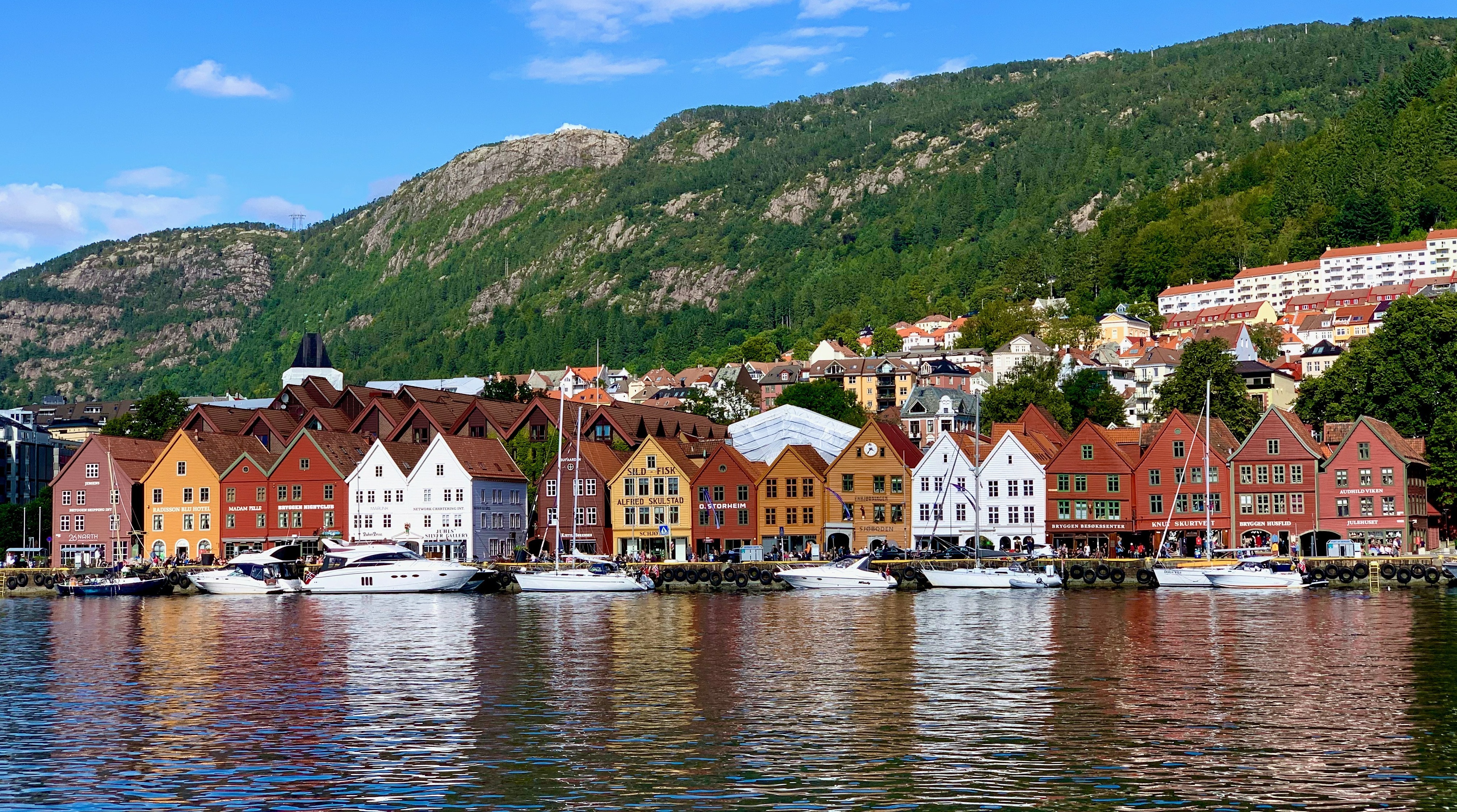EduNate Cities - Bergen

Bergen and a Different European Climate Challenge

Bergen, 21–27 September 2025 — The Norwegian city, through the County Governor of Vestland, hosted the second knowledge exchange week of the European Erasmus+ project EduNate Cities, an initiative that brings together experiences and solutions to address some of today's most pressing environmental challenges. Following Mannheim, Bergen became an open-air laboratory for studying and managing the effects of climate change and implementing innovative urban adaptation strategies.
Increasingly intense rainfall, landslides, flooding, biodiversity loss and ecological imbalances — including a marked increase in both terrestrial and marine heatwaves, where temperatures rise far above seasonal averages — are among the critical challenges Bergen is facing. These issues are further aggravated by changing seasonal patterns and the spread of invasive species.
The week brought together city officials from Bergen and the County Governor of Vestland, along with experts, researchers and practitioners, to exchange knowledge, share challenges and explore practical solutions through field visits and focused meetings.
From Theory to Practice: Bergen’s Implemented Solutions
Bergen has chosen to respond to environmental changes through structural interventions and forward-looking policies, focusing on innovative green and blue infrastructure, integrated planning and ambitious sustainability goals.
Some notable examples include:
🏛️ Cultural Heritage Under Pressure: The Case of Bryggen
-
The historic district of Bryggen, a UNESCO World Heritage Site, will be raised by 1.4 metres to protect it from rising sea levels. This project is part of a broader urban adaptation strategy to safeguard cultural landmarks threatened by climate change.
🌊 Stormwater Management: Green and Blue Infrastructure
-
A large open urban waterway is being designed to cross Bergen, improving drainage while preserving century-old trees.
-
Existing Drainage pipes are being transformed into open channels to reduce hydrogeological risk and promote biodiversity, with water directed safely towards the sea. Urban vegetation is also being planted strategically to absorb excess rainwater.
🌿 Invasive Terrestrial Species: Monitoring and Control
-
The management of invasive species is integrated into urban green space planning and the upkeep of city arboreta.
-
Bergen is collaborating with the Norwegian Biodiversity Information Centre (Artsdatabanken) to monitor invasive species such as: Japanese knotweed, Water hyacinth, American mistletoe.
-
Vestland County has also adopted regional biodiversity plans that include rotational manual and mechanical removal, physical barriers, and controlled biological methods.
🌡️ Marine Heatwaves, Invasive Marine Species and Biodiversity Loss: Impacts and Responses
-
According to Nature Climate Change, between 2023 and 2024, the number of marine heatwave days increased 3.5 times, with nearly 10% of the world's oceans reaching record temperatures.
-
Species such as Arctic cod, salmon and perch are experiencing disrupted life and reproductive cycles, and are being forced to migrate to cooler waters.
-
Bergen, Vestland and Norway are responding through: Continuous monitoring and early warning systems (Institute of Marine Research), Pilot projects in sustainable aquaculture, Ecological adaptation plans, Fishing regulations and the establishment of protected zones.
-
Rising sea temperatures are also accelerating the spread of non-native marine species, which compete with native ones. Sensitive habitats, including kelp forests and rocky seabeds, are under threat, leading to a decline in marine biodiversity.
🌱 Ecological Transition and Education
-
Bergen aims to achieve carbon neutrality by 2030, with zero-emission building projects beginning in 2025. The city is also promoting: Innovative rooftop vegetable gardens, Incentives for electric mobility, Support for sustainable agriculture.
-
Environmental education plays a central role in this transition. Biodiversity schools, animal care programmes, arboreta, and educational and social farms, are helping to train future generations and raise awareness among citizens about the importance of protecting biodiversity protection.
During the week, at the County Governor’s offices in Vestland, Norway’s broader environmental commitment was also highlighted. Notably, Norway became the first country in the world to implement a nationwide ban on deforestation in March 2025.

The Consortium at the second week in the County Governor of Vestland — and What’s Next
EduNate Cities is supported by a consortium of organisations that bring together educational, scientific, and policy expertise:
- Starkmacher e.V. – Education and social engagement (programme coordinator)
- County Governor of Vestland, Norway – Territorial governance and policy development
- Fondazione Capellino – Scientific research and innovation
The week in Bergen formed part of the knowledge exchange programme funded by Erasmus+, representing the second stage of a three-part journey:
- 1) Mannheim, Germany – Spring 2025
- 2) Bergen, Norway – Autumn 2025
- 3) Florence, Italy – Spring 2026
EduNate Cities now continues its journey: after Mannheim and Bergen, the next stop will be Florence in spring 2026. The goal remains clear — to build cities that are more resilient to climate change, inclusive of biodiversity, and sustainable, through shared knowledge and tangible action.
EduNate Cities: Where Innovation Meets Change
This is more than an Erasmus+ project: it’s a European movement connecting cities, ideas and people to rethink the urban future. At the heart of each lies a shared vision: to transform environmental challenges into opportunities for sustainable growth, with collaboration and knowledge as its foundation.





